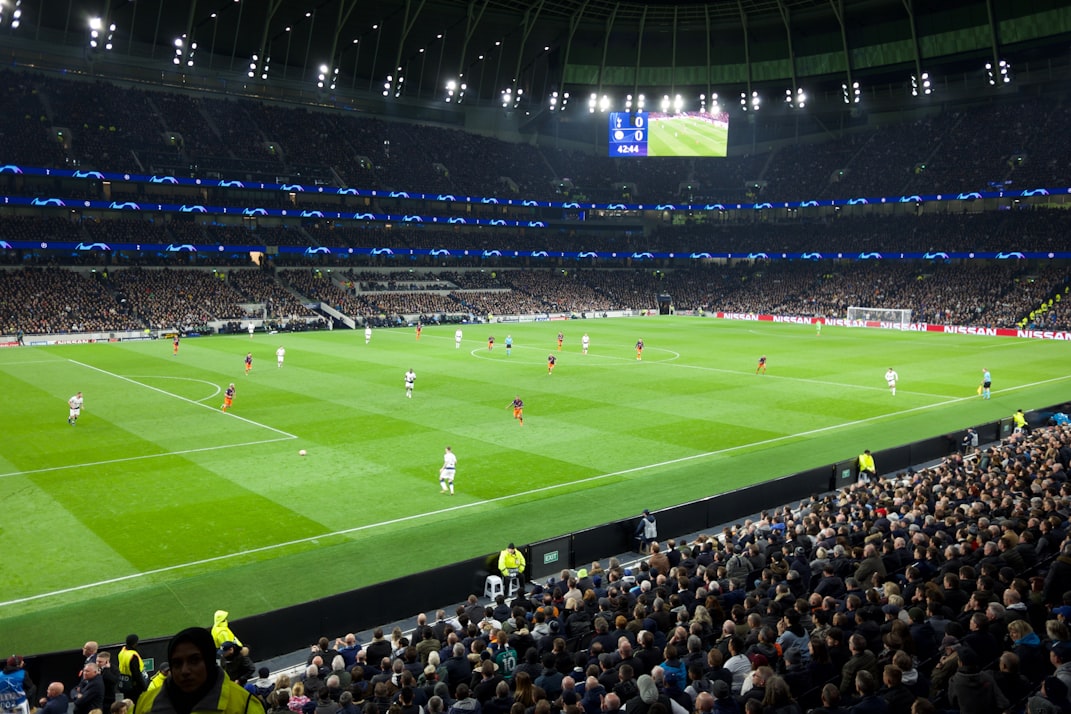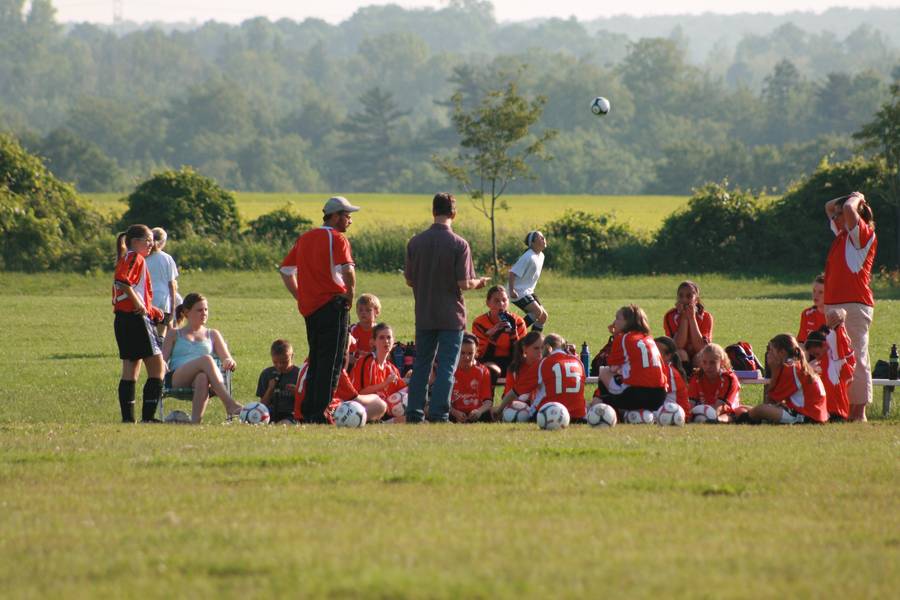
It has long been said that the English Premier League, with its Sunday kick-offs, TV-centric scheduling, Monday night fixtures, and often high admission prices, appears to have lost touch with grassroots supporters.
The further down the league ladder you go, the more the smaller clubs recognise the importance of their fan base, acknowledging the pivotal role they play in their survival.
The passion for football in Britain runs deeper than elsewhere in the world.
The thriving pyramid system is testimony to that, extending down to seven steps below League Two and consisting of over 1600 teams representing small communities across the nation.
This unparalleled pyramid system is often seen as the bedrock of English football, cultivating a connection between clubs and the communities they serve.
While Step 7 crowds may pale in comparison to the Premier League behemoths, each team has its highly dedicated followers, weathering all conditions and travelling many miles to support their club.
Indeed, attendances at all levels are on the increase and my own local non-league club recently recorded an attendance of 1,200 at step 9.
The English pyramid system is a monument to the enduring commitment of local football enthusiasts, creating a unique footballing culture unmatched anywhere in the world.
Many people argue that the pyramid system deserves not just recognition but also financial support from the upper echelons of the game.
While Step 7 teams may not be vying for millions, a modest injection of funds could address pressing needs like repairing stand roofs, upgrading changing rooms, acquiring new match balls, or maintaining pitches.
The preservation and nurturing of this system are vital for the sustained health of English football.
The current system of solidarity payments from the Premier League extends as far as Step 6 but these are often comparatively tiny handouts and structured at the discretion of the EPL.
The tension between the Premier League and the desire of the rest of the pyramid and grassroots clubs to get a slice of the vast sums of TV money often centre on whether Premier League B teams should be allowed to play competitively within the pyramid structure.
Recent discussions within the Football Association about the potential introduction of B teams into the pyramid system have sparked controversy and concern among fans and stakeholders.
In the eyes of some, the proposal to enable B Teams into the pyramid poses a substantial threat to the essence of English football.
Proponents argue that B teams could provide competitive opportunities for emerging English talent, giving young players valuable playing time and experience.
This they argue, would benefit the national team in the long run by fast tracking the development of home grown players.
However, opponents fear that the introduction of B teams could distort the competitive balance and traditional structure of the pyramid system.
The strength of the pyramid is the diversity of clubs, each with their own history, identity and community and allowing the shadow teams of the Premier League giants into the system runs the risk of diluting this.
There are also valid concerns that B teams, backed by the financial resources of top clubs, could overshadow smaller clubs and disrupt the merit based promotion and relegation system.
The prospect of clubs with significant financial backing fielding B teams in lower divisions raises questions about fairness and integrity within the game.
Critics argue that B teams could conversely hinder the development of local talent at smaller clubs, as resources and opportunities are further redirected towards B teams rather than invested in grassroots football.
This could potentially widen the gap between elite clubs and smaller community based clubs, threatening the diversity and inclusivity of English football.
The grassroots level of the game has long been the breeding ground for many top players and it seems counter-productive to inhibit this.
Historically, English football has prided itself on its deep-rooted connection to local communities and the football clubs that represent them at all levels.
The introduction of B teams could undermine this connection and erode the unique identity of English football as well as raising broader questions about the direction and values of modern football.
With the increasing commercialisation and globalisation of the English Premier League, there is a risk of prioritising commercial interests over the traditional values of community, competition, and inclusivity.
To better understand the potential impact of introducing B teams into the English football pyramid system, it's possible to look at the examples implemented in other countries.
For instance, Spain's Segunda Division B, which features reserve teams of La Liga clubs alongside local, independent clubs, offers a good insight.
In Spain, the presence of B teams has long sparked debates regarding fairness, competition, and the development of local talent.
While B teams provide young players with opportunities for competitive football, critics argue that they distort the competitive balance and undermine the integrity of the lower divisions.
Additionally, concerns have been raised about the financial advantage enjoyed by B teams, as they benefit from the resources and infrastructure of their parent clubs.
Similarly in Germany, the presence of reserve teams in lower divisions has faced scrutiny, with discussions revolving around their impact on competition and the development of young players.
While some argue that reserve teams provide a pathway for young talent to progress, others protest that they disrupt the traditional pyramid structure and hinder the growth of independent clubs.
While it may be argued that B teams could provide competitive opportunities for emerging English talents, the reality could be far different.
Major clubs' B teams, such as Manchester City B, Chelsea B, and Arsenal B, may not necessarily prioritise English talent, potentially becoming breeding grounds for young foreign imports.
To genuinely promote English players, the FA should perhaps instead focus on restricting foreign imports at the top levels and encourage more loan deals to lower leagues.
Unlike Spain, Germany, and the Netherlands, England boasts a depth of club football that demands the preservation of the non-league system.
The thriving non-league scene, witnessed in the very strong attendance figures many are recording, is a unique aspect of English football.
The support for local sides should be encouraged, promoting a culture where youngsters engage with their local teams rather than attending B team matches featuring imported talents.
As the FA, backed by the Premier League's wealth and influence, contemplates changes, it raises important questions about the future of the game.
With everyday supporters being priced out of football, concerns arise about the sustainability once corporate interests shift focus.
While the FA may seek to enhance the development of young English talent and strengthen the national team,
both laudable aims, it must carefully consider the potential consequences for the integrity, competitiveness, and diversity of English football.
Any proposal to introduce B teams into the English football pyramid system represents a significant departure from tradition and raises fundamental questions about the future direction of our game.


















